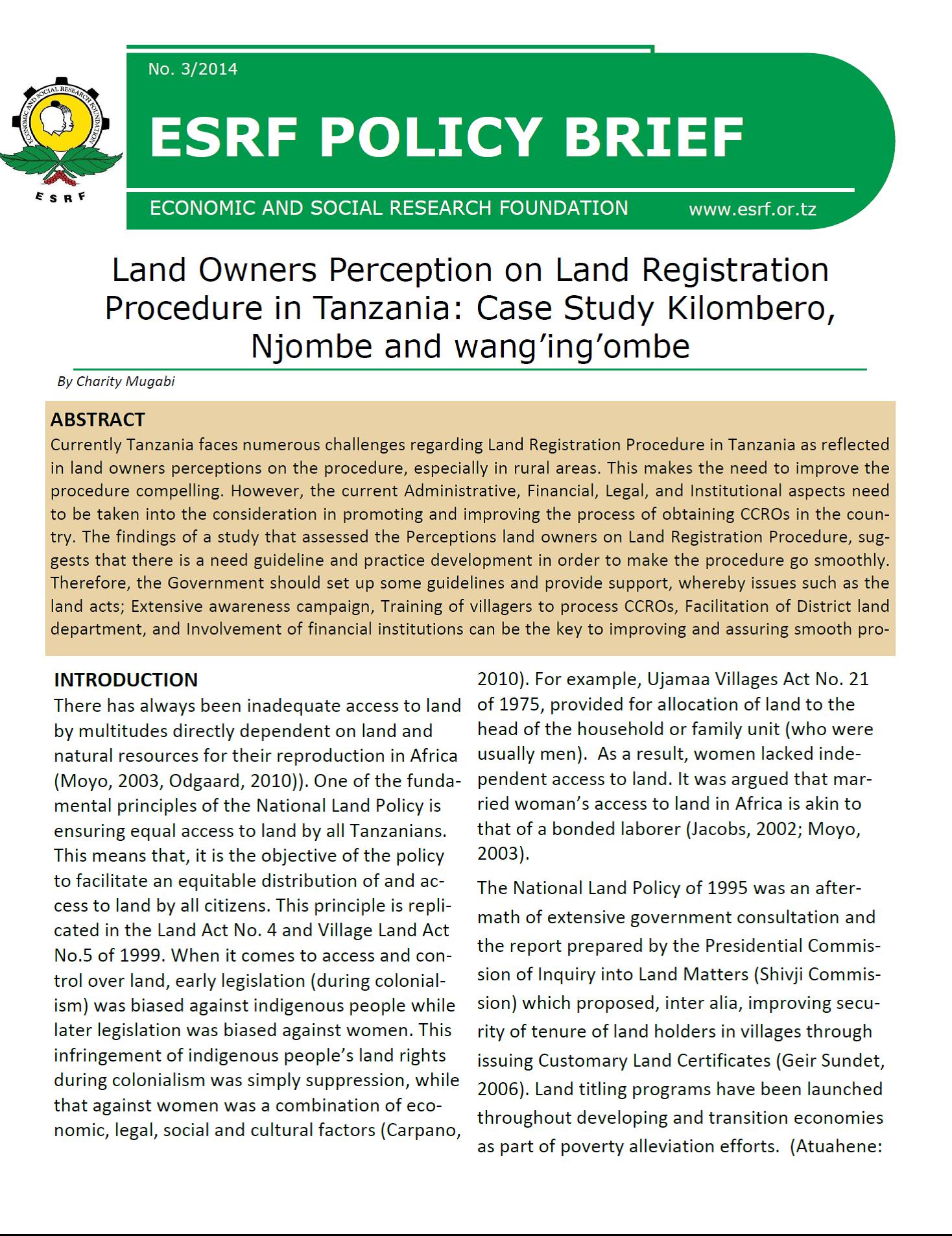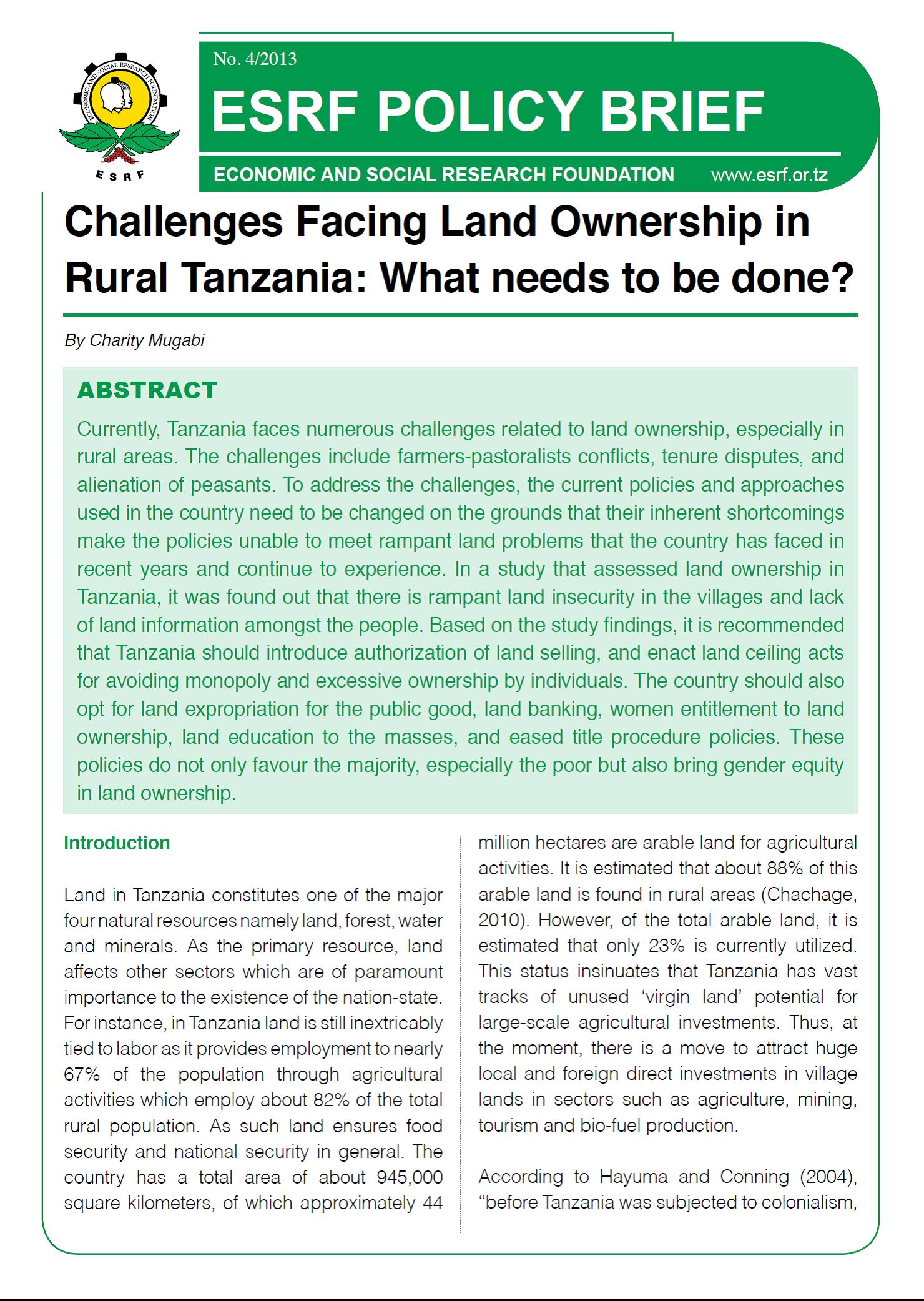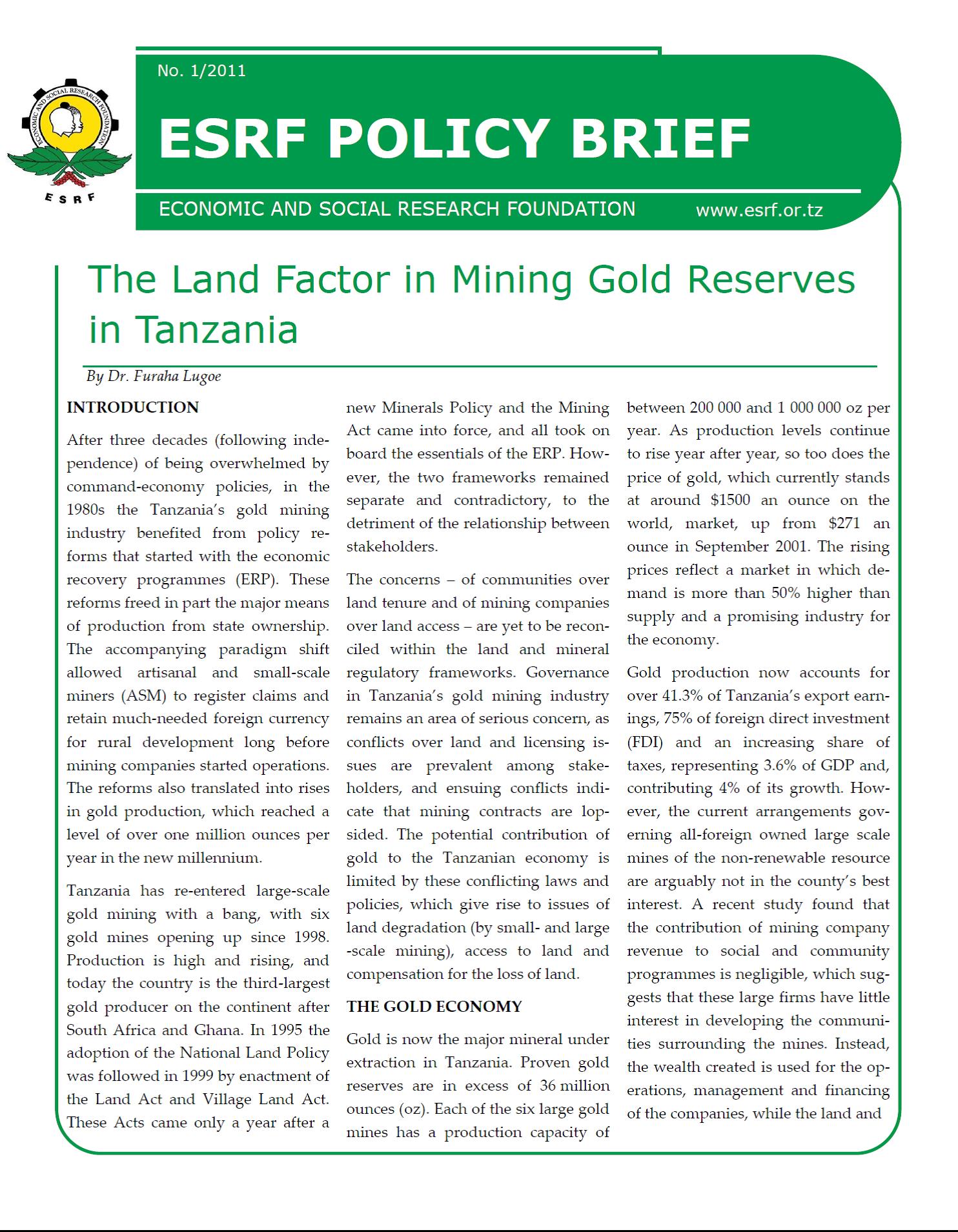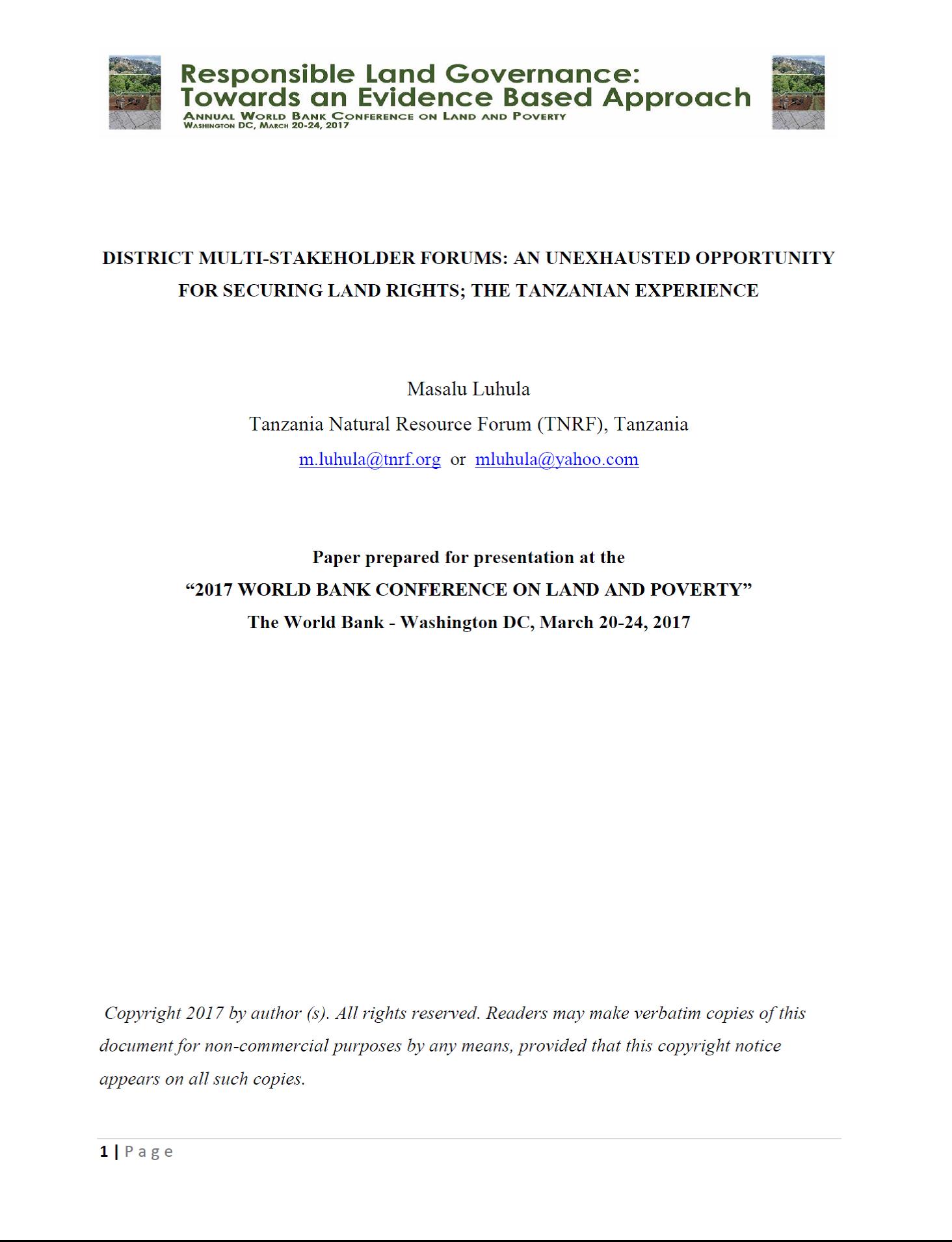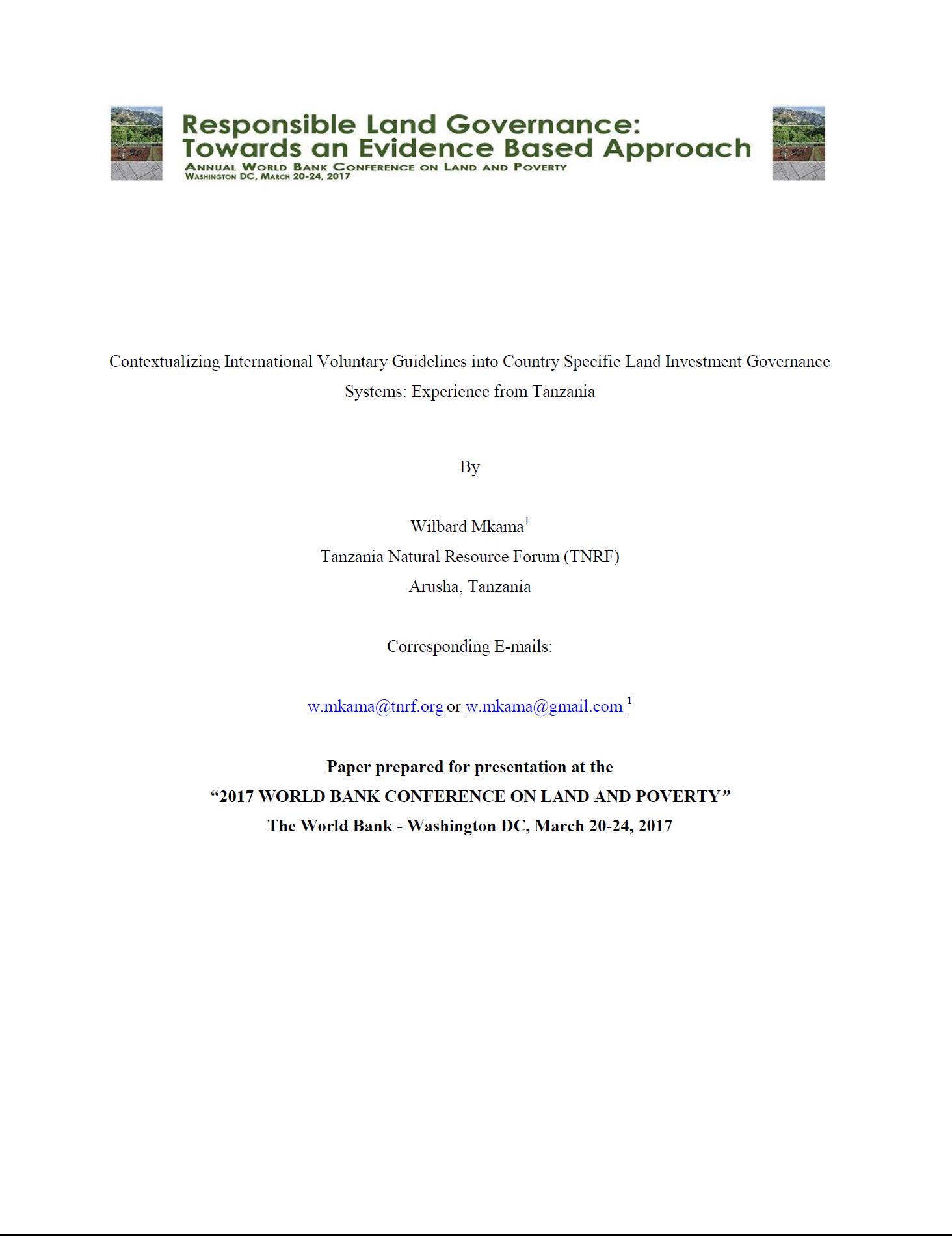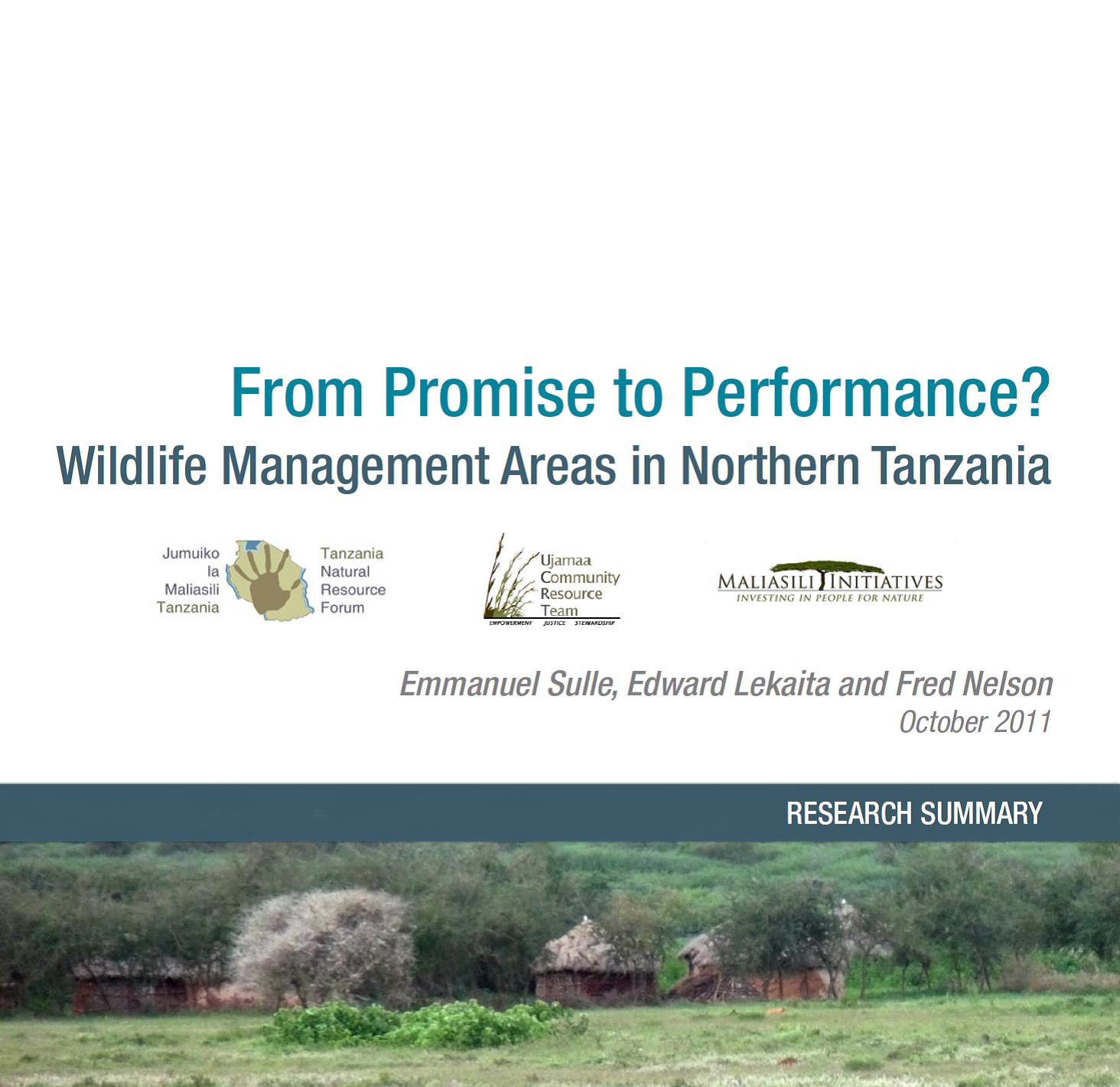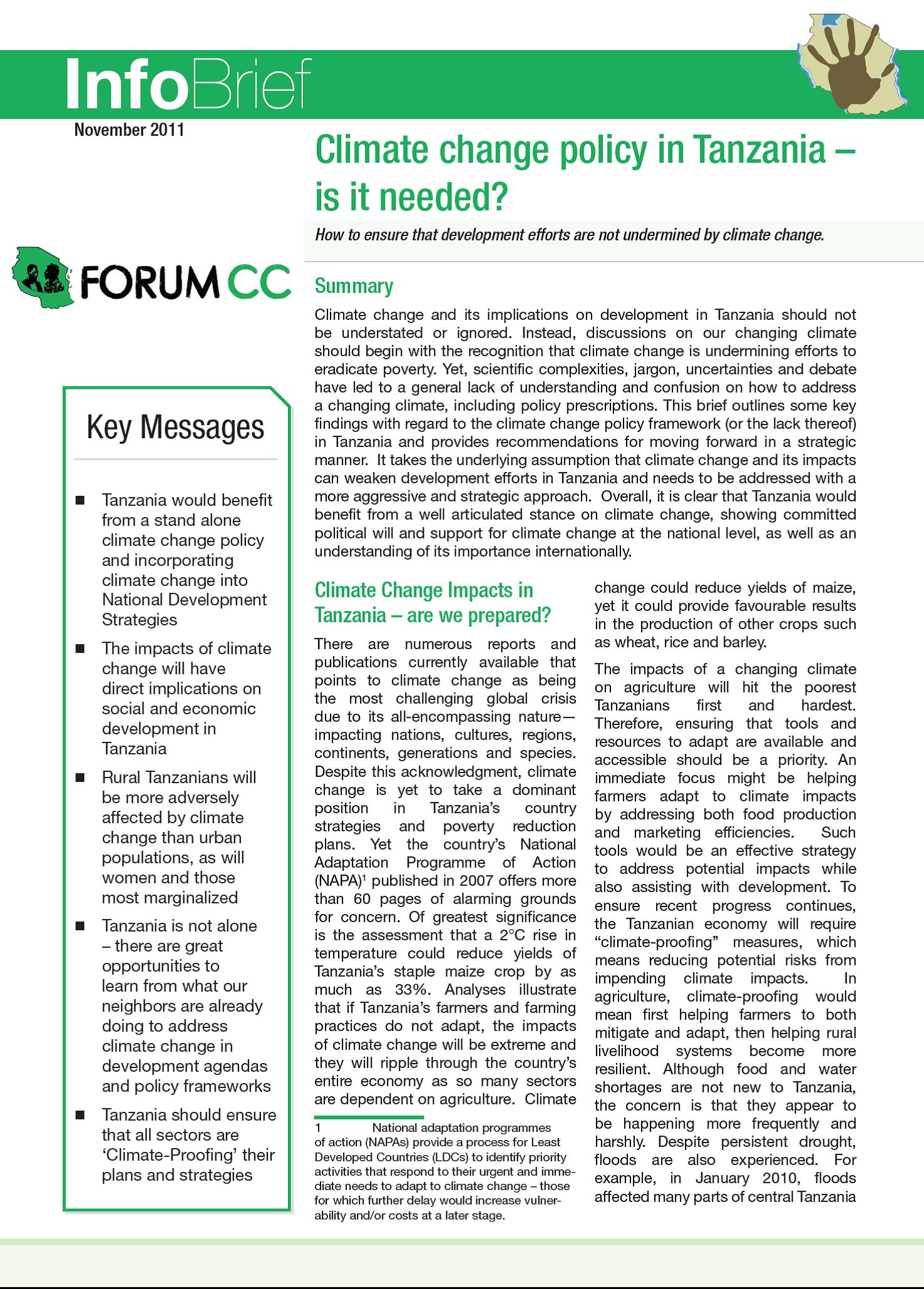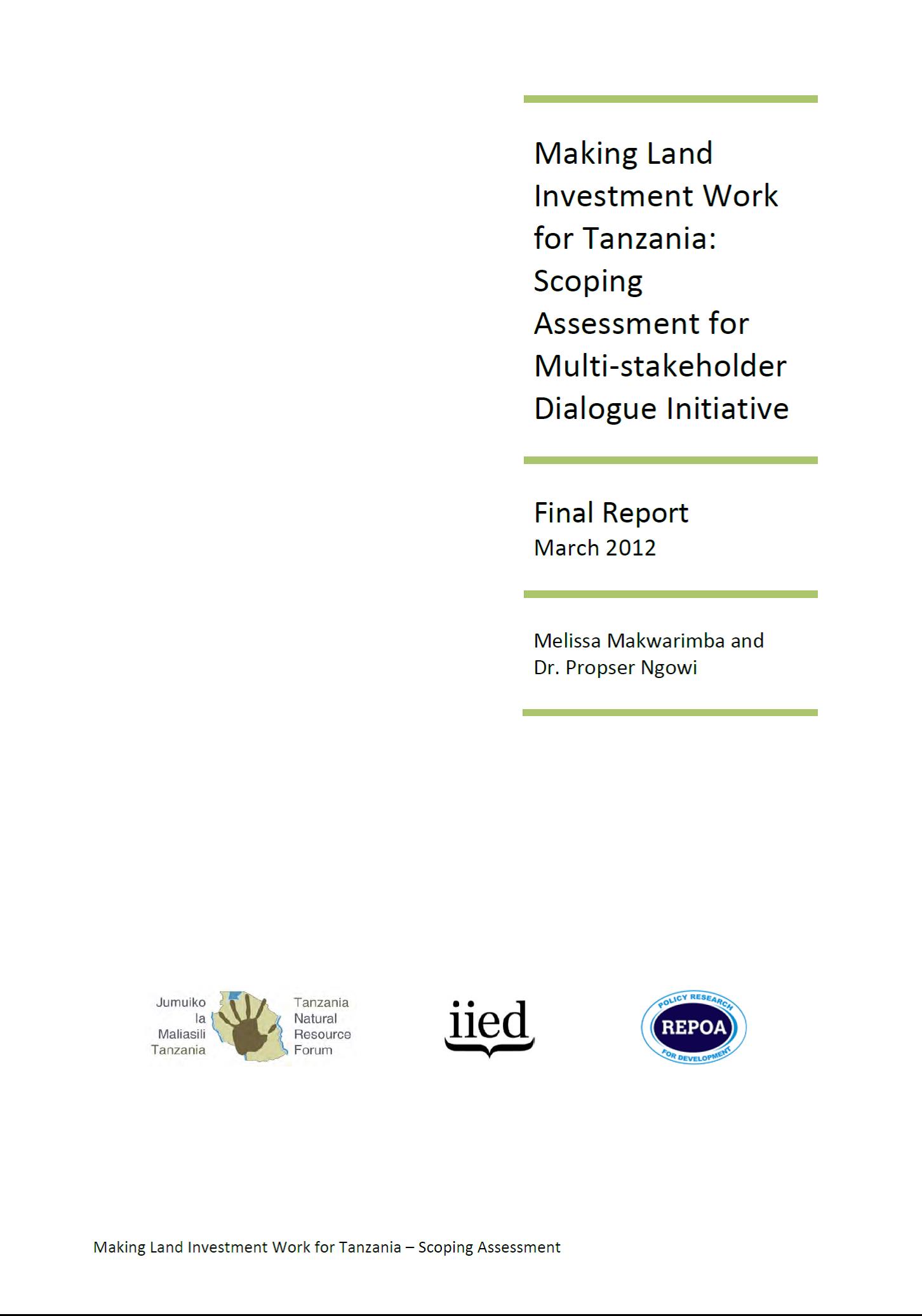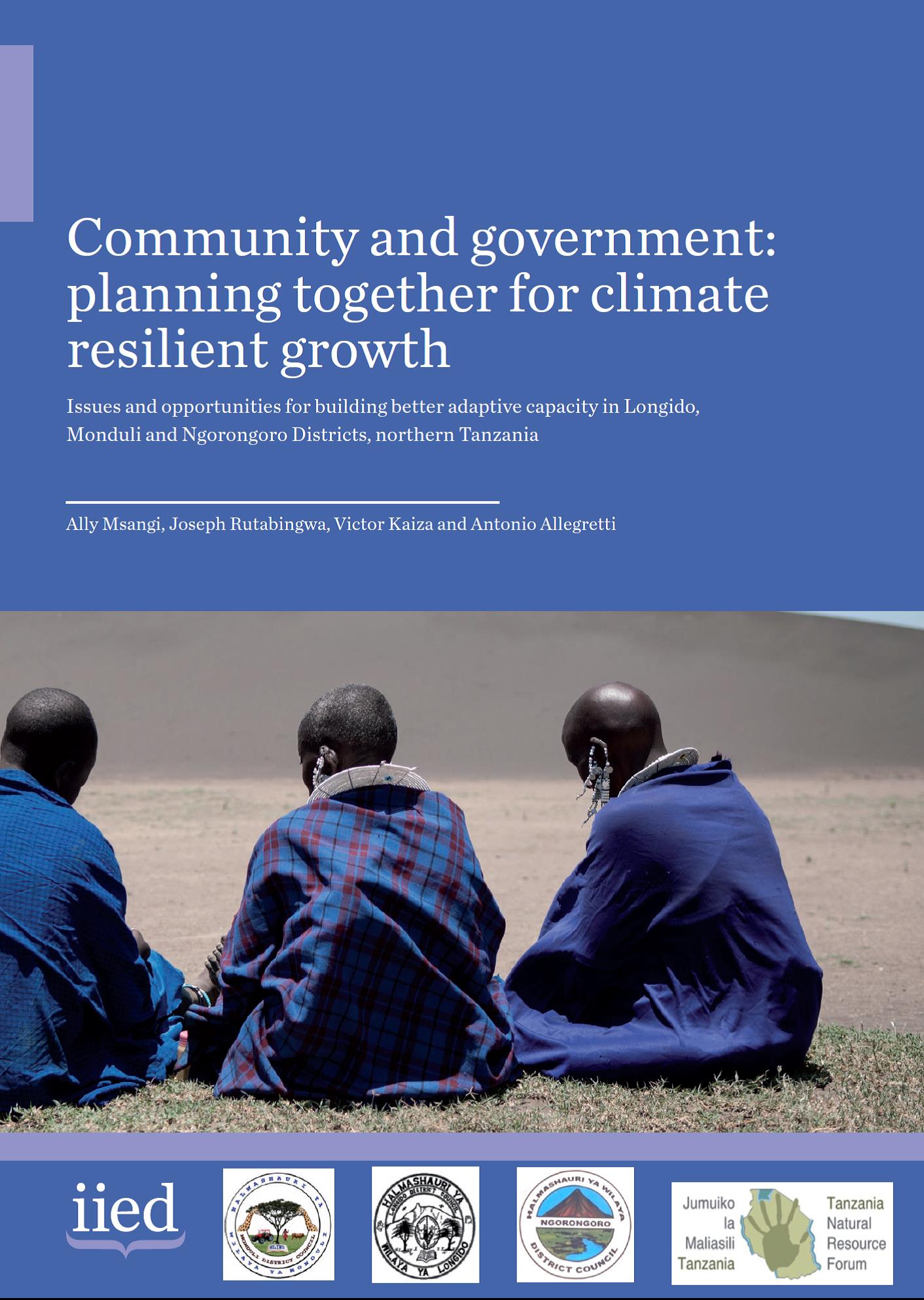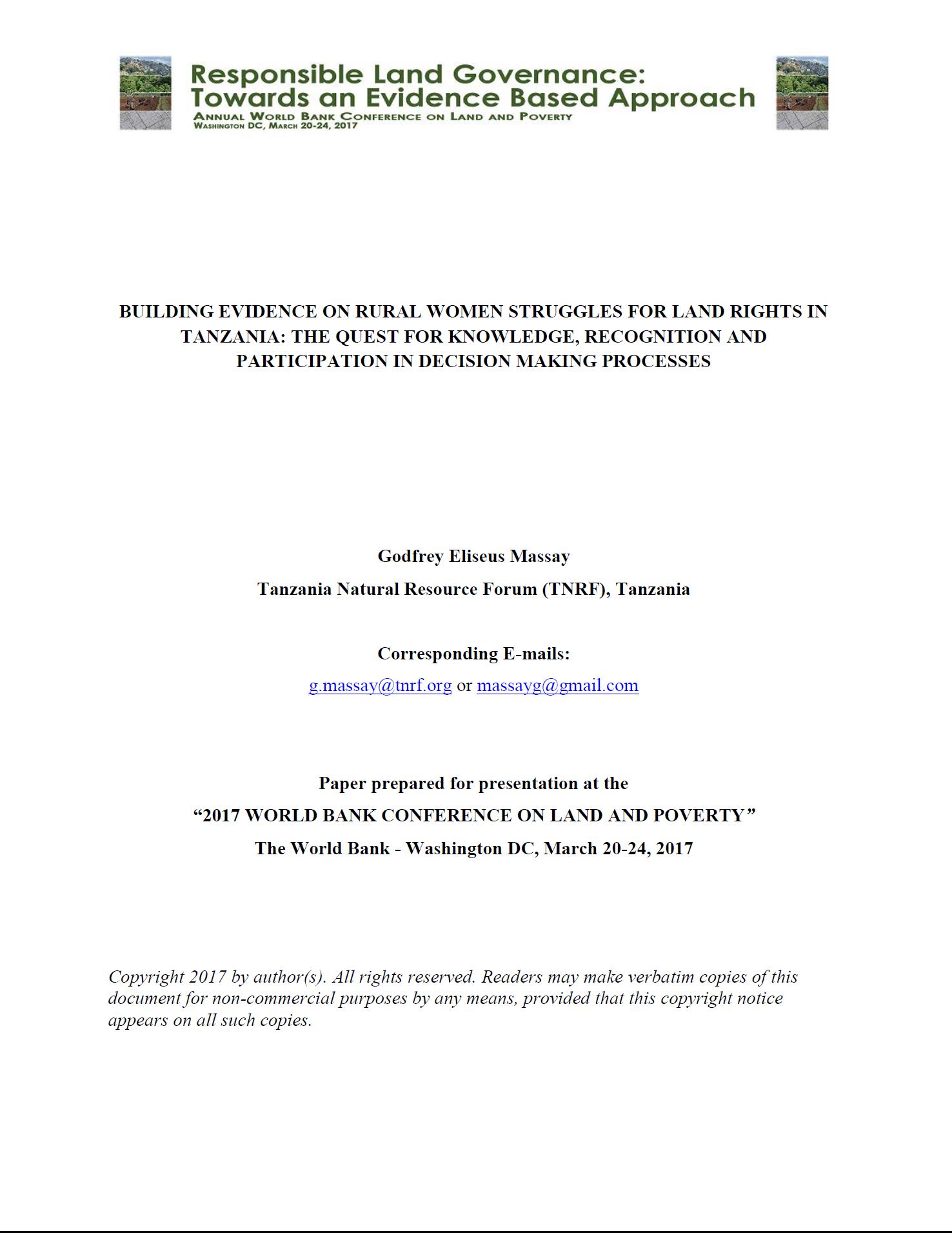
Topics and Regions
Godfrey Eliseus Massay is a lawyer and land tenure specialist.He has eight years of experience working on land rights and in the natural resource sector in Tanzania, and has written and published numerous articles on land rights in both national and international academic journals.
Details
Location
Contributions
Displaying 201 - 210 of 218Land Owners Perception on Land Registration Procedure in Tanzania
Currently Tanzania faces numerous challenges regarding Land Registration Procedure in Tanzania as reflected in land owners perceptions on the procedure, especially in rural areas. This makes the need to improve the procedure compelling. However, the current Administrative, Financial, Legal, and Institutional aspects need to be taken into the consideration in promoting and improving the process of obtaining CCROs in the country.
Challenges Facing Land Ownership in Rural Tanzania: What needs to be done?
Currently, Tanzania faces numerous challenges related to land ownership, especially in rural areas. The challenges include farmers-pastoralists conflicts, tenure disputes, and alienation of peasants. To address the challenges, the current policies and approaches used in the country need to be changed on the grounds that their inherent shortcomings make the policies unable to meet rampant land problems that the country has faced in recent years and continue to experience.
The Land Factor in Mining Gold Reserves in Tanzania
After three decades (following independence) of being overwhelmed by command-economy policies, in the 1980s the Tanzania’s gold mining industry benefited from policy reforms that started with the economic recovery programmes (ERP). These reforms freed in part the major means of production from state ownership. The accompanying paradigm shift allowed artisanal and small-scale miners (ASM) to register claims and retain much-needed foreign currency for rural development long before mining companies started operations.
District Multi-stakeholder Forums: An Unexhausted Opportunity for Securing Land Rights; the Tanzanian Experience
Administration of land in Tanzania is more decentralized from the president to the village level. The law gives power to village councils and village assemblies to administer village land. The District authorities are given advisory and supervisory mandates over villages and represent the commissioner who takes overall administrative powers. Despite decentralization, institutions responsible for land administration, land have continued to be cause of many conflicts for years. Conflicts have been escalating and lead loss of lives and property.
Contextualizing International Voluntary Guidelines into Country Specific Land Investment Governance Systems: Experience from Tanzania
This preliminary study involved consultation of responsible district government officials and relevant Civil Society Organizations (CSOs) on various issues related to land and investments. Among other areas, the Southern Agricultural Growth Corridor of Tanzania (SAGCOT) was selected as a study site and study used the Focus Group Discussions (FGDs) to obtain information. Questionnaire designed reflected land investment governance process thematic areas.
From Promise to Performance? Wildlife Management Areas in Northern Tanzania
TNRF, UCRT and Maliasili Initiatives have published, From Promise to Performance?: Wildlife Mangement Areas in Northern Tanzania. The summary provides an overview of findings of two studies recently carried out by TNRF on the current status and performance of three WMAs in northern Tanzania, in Arusha and Manyara regions
Climate change policy in Tanzania – is it needed?
Climate change and its implications on development in Tanzania should not be understated or ignored. Instead, discussions on our changing climate should begin with the recognition that climate change is undermining efforts to eradicate poverty. Yet, scientific complexities, jargon, uncertainties and debate have led to a general lack of understanding and confusion on how to address a changing climate, including policy prescriptions.
Making Land Investment Work for Tanzania
The purpose of this assignment was to establish whether there is appetite to hold a public debate on how to realise better land‐based investments in Tanzania. It also aimed at identifying what would be the discussion issues and most appropriate mechanism to allow different actors from different levels to articulate their perspectives on land‐based investments in Tanzania. This has been triggered by the sensitivity surrounding the topic.
Community and government: planning together for climate resilient growth
Planning for climate resilience growth is increasingly important for the natural resource dependent economy of Tanzania. Central government does not have the knowledge, reach, skills or resources needed to plan for the range of livelihoods within Tanzania; but local governments, if granted the authority and resources, could plan with communities in the flexible, timely and appropriate manner that climate variability demands.
Building Evidence on Rural Women Struggles for Land Rights in Tanzania
Land is one of the terrains of struggle for most rural women in Africa because of its importance in sustaining rural livelihoods, and social-cultural and geopolitical factors that hinder women from enjoying land rights. Even when there are progressive land laws, as it is for Tanzania, women have not really enjoyed their rights. However, this has not stopped women to keep fighting for their land rights. They have sought their own approaches by leveraging opportunities within traditional, religious, and formal systems standing for their rights.

